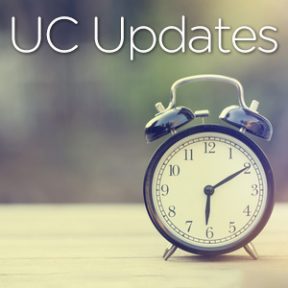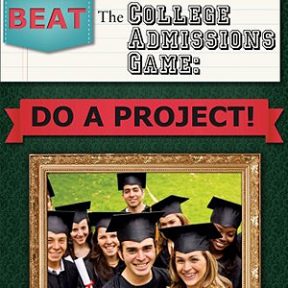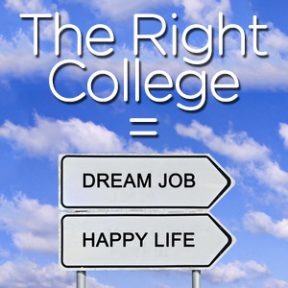Merit Blog
- Filter by
- Categories
- Tags
- Authors
- Show all
- All
- $1.35 Million fine
- 10%
- 126 mg/dL
- 2020
- 2021
- 2024
- 2030
- 2nd amendment
- 2nd wave
- 3-layered masks
- 3D shields
- 4 generations
- 4-year college plan
- 4-year college plans
- 4-year plans
- 5 easy tips to reduce wildfires
- 5% tuition hike
- 5th year
- 6 feet apart
- 6:00am to midnight
- 7-days
- 8-year medical degree
- A's for all
- AB104
- AB2147
- absentee ballot
- academic planner
- academic skills
- academics
- access to critical knowledge
- ACE
- ACEP
- ACT
- activists
- ACTs
- addiction
- admission decisions
- admissions
- admissions yield
- adolescent behavior
- advanced directive
- affirmative action
- affordable college options
- age 25
- aid
- Aidan Levan
- air pollution
- AK-15
- Alisha Bhatia
- alternative classes
- alternative ways to harden home
- alternatives to gift giving
- American men
- analogy
- analytical writing placement exam
- Angie Richman
- animal to human transmission
- anna krawisc
- Anush Anand
- anxiety
- AP Business Principles with Personal Finance
- AP courses
- AP Cybersecurity
- AP exams
- AP tests
- apple juice
- application update
- applications
- apply EA
- apply ED
- apply regular admission
- appreciation for service
- apprenticeships
- apricots
- April 23
- arbor day
- ARES
- Arul Mathur
- atomic bomb
- Aurchana Manicavasagan
- Aurchana Manickavasagan
- AWPE
- babies
- baccalaureate degrees
- back to school night
- badges
- baking christmas cookies
- baking stations
- baking with friends
- baking with kids
- ban on travel
- batteries
- bee killing
- beehives
- before and after
- best colleges
- Best of Rock 'n Roll
- Best of Rock 'n Roll: 1955-1975
- Beyond Van Gogh
- Big Ag
- big sticker tuition
- biography for grandchildren
- bistro table covers
- bistro tables
- black holes
- Black Lives Matter
- blackmail
- blocking time for tasks
- blocking time in GCal
- body image
- book by teen for teens
- boomers
- boundaries
- boy scouts
- Boys' Day
- budget
- budget cuts
- build academic skills
- build your own christmas tree
- building furniture
- built oak shelves
- bushmeat
- Busy Woman's Organizer
- buy from these companies
- buyinbulk
- buying first house
- CA
- cacao
- Cal
- Cal Fire
- CalFire
- Calif Mother of the Year
- California
- California American Mothers
- California college savings accounts
- California Fair Plan
- California law
- California Mother of the Year
- California new high school requirement
- California savings fund for 1-12 graders
- California State University
- calkids
- cannabis growers
- career and college
- Carlon's Fire Protection
- carp
- cash
- catholic
- ce
- cellphones
- censoring curriculum
- Central Fire
- Central Fire Department
- Central Fire Dept
- CERT
- chainsaw demonstration
- changing eating styles on campus
- chaos
- chatgpt; AI; essay writing; college application essays; cheating; artificial intelligence; teaching; teaching tools
- cheating
- cheating on tests
- cherries
- chicago
- chicken coop
- chicks
- children's day
- chili sunflower seeds
- china
- chipping program
- chocolate is good for the heart
- choices
- choose college
- choose major
- choosing colleges
- choosing to stay near home
- christmas cookies
- Chrohn's Disease
- ciappino
- cigs
- circadian rhythm
- City College of San Francisco
- civil rights act of 1964
- clamshellplastic
- Class of 2013
- classes
- classrooms
- clear 5 feet around the house
- Clery Act
- climate
- climate change
- climate crisis
- closing campuses
- closure for family and friends
- cloth masks
- co2
- CO2 monitors
- coach salaries
- coalition for college
- cocoa
- coconut coir
- codered
- college
- college admission
- college admissions
- college admissions decisions
- college applications
- college athletics
- College Board
- college campus tours
- college campuses closing
- college credit for apprenticeships
- college decisions
- college degrees
- college dining halls
- college experience
- college grades
- college jobs
- college rankings
- college rejection
- college rejections
- college savings accounts
- college savings fund
- college spring break
- college students
- college students vote
- college tuition
- college wait lists
- college waiting lists
- college yields
- college-bound freshmen
- colleges cut health care budget
- colleges still accepting applications
- collegevoters
- combustible materials
- common application
- communication
- community college
- community college vs 4 year college
- community working together
- Company A
- completing suicide
- Congo
- contact tracing
- Cordyceps
- coronavirus
- coronavirus gap year
- coronavirus test kits
- corpus christi
- costumes
- countdown
- COVID
- covid-19
- COVID-19 rules
- COVID-19 vaccine record
- Crystal English
- CSU
- CSUs
- cultivating mushrooms
- curriculum
- cuts
- cutting trees
- cyberbullying
- cybersecurity essential for everyone
- dairyfree yogurt
- Daisy Payton
- Dance Designs
- Dancenter
- Danny Cortazzo
- David Dean
- David Reid
- david vasquez
- debt
- defensible space
- degree
- dehydrating fruit
- Dems
- den leader
- devid
- diabetes
- dictionary
- dim bulbs
- dinners for ER staff
- diploma
- disaster plan
- discrimination
- disenfranchised
- dishsoap
- diversified class
- diversity
- DIY
- DIY cherry picker
- diy laundry detergent
- doctor
- doctors
- doggie dressup
- Dollies
- don't cut a tree
- dorm life
- dorms
- double scholarships
- Dr Nicole D'Arcy
- Dr. Fauci
- Dr. Lin
- draft
- drive less
- drop out rate
- drought
- drought shaming
- droughts
- Ds vs C-
- dumb
- dystopian society
- early college
- earnings
- Earth Day
- eco friendly christmas
- eco gift wrap
- eco xmas tree
- effort not outcome
- eggs
- el paso
- Election
- elementary
- eliminate plastics
- elite college admissions
- ELWR
- ember-resistant Zone
- emergency
- emergency rescue career
- EMT
- EMTs
- Enola Gay
- enrollment
- entitled Americans
- Entry Level Writing Requirement
- EO13950
- EOS
- equal education for all children
- equine evacuation
- equity gap
- ER doctor
- ER doctors
- Eric Swenson
- Eric Wei
- essay prompts
- ethnic studies
- ethnicity in college admissions
- ethnicstudies
- Evacuation Smarts
- event
- Exam Rabbit
- Executive Order
- Executive Order 9066
- exotic animals
- expanding enrollment
- expunge records
- F.A.C.E.
- FACE
- face shields
- FAFSA
- family
- family cleaning
- family heirlooom
- family legacy
- family reunion
- family traditions
- far west fungi
- Farm Bill
- favoritism
- feelin beautiful
- feeling appreciated
- female
- Ferrell's Donuts
- financial
- financial aid
- financial literacy for every teen
- fire activate canister extinguisher
- Fire Defense Service
- fire extinguishers
- fire fighting
- fire hydrants
- fire inspections
- fire insurance
- fire mitigation
- fire preparedness
- fire prevention
- fire prevention education
- fire prevention tips
- fire protection
- fire resistant siding and walls
- fire solutions
- firefighters
- firefree
- firewise
- Firewise event agenda
- Firewise event speakers
- firewise USA
- first female doctor
- fish oil
- fixing
- flu shot
- folding paddleboard
- FOMO
- forming pandemic pod
- founding fathers
- fracking
- Frank Locatelli
- fraternities
- free child care
- free childcare
- free childcare in your home for free
- free money
- free tuition
- fresh peaches
- fresh raspberries
- fresh squeezed apple juice
- freshman experience
- freshmen
- frontline
- frontline workers
- fully functioning brains
- gap year
- gap year trend
- garlic
- gaslands
- gaslands 2
- GCal
- GE
- gen ed
- Gen XYZ
- Gen Y
- Gen Z
- gender fluid
- gender identities
- gender-neutral singular pronoun
- genderqueer
- genealogy
- generationz
- getoutthevote
- getting kids to spring clean
- gift bags
- gift giving
- global warming
- glove box
- glyphosate
- Go Bag
- go bags
- Google Calendar
- GovNewsomvetoesbill
- GPA
- grad regalia on dog
- grad requirements
- grad school humanities
- grade improvement options
- grade inflation
- grades
- grades vs pass/fail
- graduation rate
- graduation rates
- grammar
- grammarian
- grants
- grassroots
- great value
- Greek life
- Greek society
- gregory
- gregory gavin
- Grinnell
- grit
- growing almonds
- growing mushrooms
- growing my own herbs
- growing seedlings in a rain gutter
- growing walnuts
- gun violence
- guns
- guns on campus
- hair pieces
- halloween
- ham radio
- hand sanitizer
- hand sanitizers
- handmade gifts
- hands-on experience
- hangouts
- hannah
- hannah faris
- Harbor UCLA ER
- Harpin' Jonny and Clark
- Harvard
- harvesting fruit
- hate crimes
- hatred
- hazing
- healthcare workers
- heart attacks
- herbs
- high school
- high school graduation requirements
- high school seniors
- high school students
- higher enroll rate
- higher graduation rate
- Hiroshima
- historians
- history
- hoarding
- holiday gifts
- holiday preparation
- holistic view
- home
- Home Depot
- home fires
- home hardening
- homeless
- homemade masks
- homemade yogurt
- homeschool
- hope for college
- housewarming gifts
- how to host a socially distant lunch
- human rights
- IBC tanks
- IBD
- IBM
- immersive exhibit
- Impact Incubators
- in-person classes
- increased odds
- independent studies
- indoor ventilation
- industrial revolution
- inflammation of the heart
- inflation
- inflation causing tuition hikes
- inmate crews
- innovation
- inoculating millet grain
- insanity
- international
- internet
- internet gaming disorder
- internment
- internment camps
- internships
- interracial marriages
- interviews
- iphone
- Ishan Bhatia
- JACL
- jaclyn
- Jaclyn D'Arcy
- Japan
- Japanese Americans
- Japanese Americans incarcerated during WWII
- Japanese Children's Day
- joe
- joe jordan
- john deere
- John Gerhardt
- John Walbridge
- joint degree program
- journal entries
- Jr. Company
- June 20
- just for fun
- K-12 college savings accounts
- kawana family reunion
- Keith Trinity
- kellogg
- kenya
- Kianti's
- kickstarter
- Kiran Sunil
- Know your zone
- kombucha
- Laina Farhat-Holzman
- lamb haas avocados
- laundrydetergent
- law
- leaders
- leads for recycling
- learn at home
- learning
- learning hubs
- legacy
- legacy admissions
- legacy admissions; Varsity Blues Scandal; Leave Your Legacy
- let them fail
- letters of recommendation
- Liberty Lost Lessons in Loyalty
- Limb up trees
- limbing
- Live Oak CERT
- live on campus
- loans
- location
- logan
- logan conover
- Loki
- long-term commitments
- lost scholarship opportunities
- lovechocolate
- low-income families
- low-income students
- Lowe's
- M.B.A.
- mail ballots
- mail-in ballots
- Make America White Again?
- make your own
- malaysia
- male
- manu koenig
- march deadline
- Marco Mack
- Marianne's Ice Cream
- martin
- martin gaskell
- mas
- mas hashimoto
- masks
- matching signatures
- math scores dropped
- May 1st
- May 5th
- MBA
- meat alternatives
- medi-honey
- medical
- medical school
- medical supply chain emergency act
- Mehtaab Dhillon
- men vs women in college
- mental health
- Merit
- merit academy
- Merit Academy curriculum
- Merit Educational Consultants
- Merit Educational Consultants LLC
- Merit Planner
- Merit Summer Theater
- methane
- methanol hand sanitizers
- metrol
- mexico
- Michael Beck
- Michele Roush
- micro communities
- microgreens
- middle
- Mike DeMars
- millennials guide to free childcare in your home
- missing ingredient is grit
- Mochi
- model perseverance
- Monarch Dance
- money
- more documentation
- more women in college
- Mother of the Year
- Mother's Day
- multitasking
- MURS radio
- MURS radios
- mushroom pesticides
- mushroom spores
- mushrooms
- music
- muslim
- mycelium spawn
- N95
- N95 masks
- Nagasaki
- National Dance Day
- National Doctor's Day
- National Toyota Community Scholars
- National Women Physicians Day
- nationalteacherappreciationday
- natural gas
- necole
- nectarines
- need-based admissions
- Neha Surendar
- never again.
- new digital format
- new hope
- new law
- new normal
- new school year
- newborns college funds
- Newsom
- Nicholas Baldridge
- Nicholas Tran
- Nicole D'Arcy
- Nicole D'Arcy MD
- nicotine pouches
- Nishi Dharia
- NLP
- no artificial christmas trees
- No Limits
- no loans
- no more online classes
- no red meat
- no tuition
- no-more-tears
- nonbinary gender identification
- North Rodeo Gulch
- North Rodeo Gulch Firewise
- North Rodeo Gulch Firewise USAm
- northwestern
- not disclosing campus crimes
- Nov 7
- NRG firewise
- NRG Firewise event
- NRGfirewise
- NRGfirewise USA
- nuclear bomb
- nurse appreciation day
- oak cabinets
- oak grove
- obsession
- ocean kayak
- omega-3
- on campus
- on-campus classes
- oncampus classes
- one person can make a difference
- one-on-one accredited classes
- one-on-one classes
- online
- online cheating
- online classes
- online credentials
- online tests
- OR3
- organizational skills
- organizing
- organizing electronics
- origami paddler
- OSHA
- outdoor dining
- overpopulation
- pack leader
- Pam Pac'd
- pandemic
- pandemic halloween
- pandemic pod
- pandemic pods
- pandemic solutions
- Pandemic year
- pandemics
- paper towels
- pascal
- pascal costa
- pass/fail
- pass/no pass
- passing grades
- pathways to solutions
- Patriotic Education
- pay off
- pay teachers more
- Peace Memorial Park
- peach yogurt
- peaches
- penny wise pound foolish
- perfect storm
- persistency rate
- personal biography
- personal pronouns
- pesticides
- petshampoo
- Phil Irwin
- phone etiquette
- phone schedules
- phones
- phonics
- phonograms
- photo album
- photo organizing
- photo renaming
- plagues
- plant-based
- planting trees
- plastics leach toxic chemicals
- plums
- podcast
- poison oak
- popoverpop
- postponed
- postponing weddings
- PPE
- PPEs
- prefrontal cortex
- prejudice
- prep for career
- prep for college
- prep for life
- prepring for finals
- preschool
- prescribed burns
- prescription medications
- Presidential Advisory 1776 Commission
- prevent wildfires
- prices
- priests
- private school
- project
- project merit
- projectmerit
- projects
- pronoun confusion
- proof of immunization
- propaganda
- propagating mushrooms
- protection against COVID
- protects against air pollution
- protects brains
- protocols
- protocols for pandemic
- public v private
- quarantine
- quarantine on campus
- questions for teachers
- race
- racism
- Racism and America's Concentration Camps
- radios
- rain gutter
- rain gutter trough
- rainforests
- rainwater
- rainy day project
- rankings
- raspberries
- rats overcrowded
- RCD
- reading
- reading scores dropped
- reading wars
- real heros
- record breaking application numbers
- recruiting teachers
- recycler
- recycling
- reduced tuition
- reducing wildfire risks
- redwood deck
- refinishing cabinets
- refreshing summer drink
- register to vote
- rehabilitation works
- reinvent
- reinvent yourself
- rejection
- rejectRoundup
- relocation camps
- remedial college classes
- repeat a grade
- report cards
- requirements
- Resource Conservation District
- Response Recovery Resilience
- restructuring spring break
- return on investment
- reusable gift wrap
- reusable wipes
- reuse gift tags
- reuse xmas cards
- reusing
- reverse 911
- rice krispy treat witch
- Rio Theatre
- riveropolis
- Rod Caborn
- rod for bistro table covers
- ROI
- ROI for college
- ROI for part time workers
- ROI grad school
- role models
- roosting area
- Rory Kennedy
- rosemary
- Royal Taj
- run on paper towels
- sacrifice a little
- safe distance
- safe gatherings
- safer building solutions
- safety
- safety zones
- samarai
- San Francisco State Univ
- San Joaquin Valley
- San Jose
- sanitizer
- sanitizers
- sanitizing wipes
- Santa Cruz
- Santa Cruz County Sheriff
- Santa Cruz Equine Evacuation
- sat
- SAT 2
- SAT essays
- SAT subject tests
- SAT/ACT
- sat2
- satin gift wrap
- SATs
- save money
- save your house from fires
- saving colleges
- saving trees
- say no to vinyl
- SC County Sheriff
- scandal
- scholarship
- scholarships
- school
- school budget cuts
- school safety
- science
- scouts
- scratching area
- screens
- SCVMC
- Sean Gomez
- Sean Murphy
- selective service
- self-esteem
- selfreliance
- sexual assault
- sexual identity
- sexual predators
- SFSU
- shark attack
- shelter in place
- shields
- shiitake mushrooms
- shopping list
- should i wear a mask?
- signatures
- silk flowers
- silver lining
- singleuse plastic
- singleuseplastics
- singular they/them
- SIP
- SIP projects
- skype
- slang
- slang dictionary
- slashing tuition
- sleep deprivation
- sleep routine
- smartphones
- smoke alarm
- smoke detector
- smoking
- SMS
- sneaky
- social distancing
- social graduation
- social isolation
- social justice
- solutions to cheating
- sophomores on campus
- Soquel
- sororities
- Spanish Flu
- speakers
- spicy peppers
- sports
- sports vs academics
- spring break
- spring break 2021
- spring cleaning
- standardized tests
- Stanford Dollies
- Stanford Medical School
- State Farm
- stay home
- stay safe
- stay-at-home
- stereotypes
- stevia
- stigmas
- Stokes Signs
- stop blaming others
- stop eating meat and dairy
- stop gift giving
- stop hating
- stop the surge
- stop whining
- stopusingplastic
- storm
- student athletes
- student learning
- student sewage
- student stress
- students
- students coming home for holidays
- study skills
- subject test
- success begets success
- success in school
- sugarfree yogurt
- suicide
- summer reading lists
- Supervisor Manu Koenig
- supplementary programs
- supply chain
- support companies
- support your teachers
- surgical masks
- Susan Tatsui-D'Arcy
- sustainability
- swing flu
- TAG
- takeoutcontainers
- teacher appreciation week
- teacher qualifications
- teacher shortage
- teachers
- teaching
- teaching reading
- team work
- teamwork
- tedx
- TEDx COUNTDOWN
- TEDx speakers
- TEDx talk
- TEDxCountdownm
- tedxmeritacademy
- TEDxMeritAcademy.com
- TEDxYouth
- teen angst
- teen solutions
- teens
- telecommute
- test
- test blind
- tests
- texas
- thank you
- thankateacher
- Thanksgiving
- Thanksgiving safety
- The Eco Xmas Tree
- The Farm Bakery
- they/them
- thistles
- tim
- tim niemier
- time management
- tips from the experts
- tips on avoiding stereotypes
- tips on college personal statements
- tips on writing college application essays
- Tony Akin
- tour
- toxic hand sanitizers
- transcripts
- transfer
- transfer agreement guarantee
- transfer student
- transfer students
- transfers
- transgender rights
- trauma
- trending lower
- trick or treat treasure hunt
- trump
- tuition
- tuition hikes
- tuition increase
- tutoring
- twins
- uc
- UC admit days
- UC announce admissions decisions
- UC applications
- UC Berkeley
- UC Merced
- UC next steps
- UC Schools
- UCLA
- UCOP
- UCs
- UCs banned ACT
- UCs banned SAT
- UCs require flu shots
- UCSB
- UCSC
- UCSC on campus
- UCSD
- UCSF EMS Fellowship
- UCSF Fresno
- university
- University of California
- University of California incoming class requirements
- unqualified students accepted
- update
- upper-decky lip pillow
- urban forestry
- Urban Styles
- USC
- use cloth towels
- use tile instead of wood
- uvalde
- vaccines
- vacuum sealing fruit
- Valentine'sDay
- Valley Medical Center
- Valley Medical Center ER
- Valley Medical Foundation
- Van Gogh
- vapes
- vaping
- vegan
- video
- video games
- vinyl gutters
- virtual classes
- virtual family reunion
- virtual spring 2021
- virus
- virus origins
- VMC
- vote
- vote by mail
- vote early
- vote this november
- vulcan vents
- wall
- waste
- water
- water capture systems
- water catchment system
- water collection
- water filters
- water nipples
- water shortages
- water thieves
- watering fruit trees with reclaimed water
- WDS
- we need teachers
- wear a mask
- wearing masks
- weeding
- weedwhacking
- weekly menu
- what to do after filing FAFSA
- when not if
- whennotif
- whole language
- Wildfire Defense Services
- wildfire mitigation
- wildfire mitigation efforts
- wildfire prevention plan
- Wildland Fire Hazard Specialist
- wildland fires
- windy city
- wine
- working together
- WWII
- Yale
- yields
- Zone 0
- zoom
- zyn
- Zynfluencers
Students applying to colleges know that they have to answer lots of questions on applications so the colleges can size you up to see if you fit the profile they’re looking for in their incoming class of freshmen or transfer students. Questions focus on academic records, parent education and employment, school and extracurricular activities, and legacies. At the end of most college applications, students are required to check 2 boxes that inquire about suspensions/expulsions and criminal records. If they check either of the boxes, students are required to write a short essay explaining the circumstances. Louisiana recently barred public colleges from asking about and making admissions decisions based on a student’s criminal past.
There is a growing movement supporting this ban because many students who have criminal records are not dangerous to others (petty theft) and were minors at the time of the incident. By making it difficult for these students to become productive members of society with a college degree, we may be forcing these young people into criminal activity as adults.
Students who check the box about a criminal past are often discriminated in the competitive application process. As a result, many students simply don’t apply to colleges and leave higher education out of their reach for future careers.
On the flipside, should colleges have the right to know about a prospective student’s criminal history? Let’s say the student was involved in violent behavior – or convicted of rape or other heinous activities. Withholding a student’s record of violence, drug abuse, or other activities might prove to be a mistake when colleges build incoming classes.
This is a sensitive issue. One on hand, teens make mistakes and should be given the opportunity to right their wrongs. On the other hand, colleges have the right to know about their students’ past activities (academic, extracurricular, and criminal) so they can make appropriate decisions.
Public colleges already give students the opportunity to explain the criminal record, but it appears that college admissions officers aren’t sympathetic to these types of lessons learned. One of my female clients was sexually assaulted by a teen boy. She punched him when he harassed her in school, and then she tried to scare him with her car as she drove past him in the school parking lot. She was suspended but the boy walked away with no record. Granted, this was not acceptable behavior but she was denied admission from several public colleges.
What are your thoughts about “banning the box”?
[Source]
Rather than teach individual and isolated subjects like math, language, science, and history, Finnish schools focus on real-world issues – like climate change – and then dissect it from academic perspectives. Sure, we’ve had our share of theme-based classrooms with holistic approaches to education in the past. But the difference here is that the Finnish schools also teach the core foundation classes like mathematics, science, and language in regular class settings and the topic-based courses to stimulate group problem-solving discussions. Their primary school system was ranked #1 in the world in 2016; we were ranked #39. Hmm.
Read this article “Finland’s new, weird school ‘courses’ say a lot about how we teach our kids” by James Gaines. What are your thoughts?
The University of California just announced that several of their campuses will accept undergraduate admission applications for students who would like to start in winter or spring 2018. This is good news for those who applied and didn’t get in. By completing the UC application by July 31st, 2017, you could start at a UC as soon as Jan 2018.
Here are the campuses that are accepting applications between July 1-31, 2017:
UC Merced: Accepting applications for first-time freshmen and sophomore, junior, and senior transfer students for spring semester (starts Jan 2018).
UC Riverside: Accepting applications for sophomore, junior, and senior transfer students for winter quarter (starts Jan 2018).
UC Santa Cruz: Accepting applications for junior transfers for winter quarter (starts Jan 2018).
This is a great time to apply to these UCs because the applicant pool will be considerably smaller. Good luck!
After 24 years of school (Merit Academy, Stanford Undergrad, Stanford Medical School, and Harbor-UCLA EM Residency), I’m proud to say that Nicole is officially an Emergency Medicine Doctor!
We watched her graduate with her 15 co-residents on the Queen Mary in Long Beach, CA. She starts her EMS Fellowship at UCSF in 2 weeks where she plans to develop efficient systems for pre-hospital care and disaster preparedness protocols. Nicole D’Arcy was in the first graduating class at Merit Academy, and she has set the bar and serves as a role model to so many Merit students.
Congratulations Nicole!

With over a million gifted girls in the United States, it’s time to rethink holding them back for “socialization” when accelerating their education to innovating their curiosity and ability to learn, setting up and establishing their careers, and having time to raise a family will give them extraordinary advantages for the rest of their lives. Naturally, this is not for every girl. But for those girls who are truly gifted, it allows them to have the lifestyle that want and deserve, on a timeline that works for them.
When exceptionally gifted girls remain with their peers through high school, they typically underachieve and lose motivation, become anxious, and succumb to low self-esteem. Classes are boring and homework is an exercise in busy work and brain-numbing obedience. But according to Maureen Neihart, “The Socioaffective Impact of Acceleration and Ability Grouping: Recommendations for Best Practice,” girls who engage in accelerated programs and college classes actually produces social-emotional gains for these gifted and talented students.
It would be ideal for gifted girls to move ahead together in small groups so they can support one another’s social and emotional needs in a high school or college setting. That’s why I opened Merit Academy back in 1994. My goal was to give both of my daughters that opportunity to develop intellectually, academically, and socio-emotionally in small groups and later in one-on-one classes at Merit. I found that they engaged with their teachers and learned a wider breadth and depth in each of their subjects – something I’m certain they wouldn’t have received in a regular class setting.
For gifted girls who might graduate from high school at age 14, graduate from college at 18, and receive their PhD at age 22, they have the opportunity to be fully immersed in their studies and practice their expertise and establish their careers by the time they can settled down to get married and start a family. Women who have followed this path find that they’re more successful, land professional careers, and have plenty of time to raise a family without the burden of being in medical school while raising a young family. By accelerating gifted girls’ education, we can break the glass ceiling and women might be able to finally join the ranks of the top positions in every field – something that has been missing in every board room in corporate America.
[Source]
Now that May 1st has passed and seniors have accepted to their colleges (or you’re waitlisted), here are some important updates.
May 13: Analytical Writing Placement Exam (AWPE)
May: Freshmen on the waitlists will receive notifications about admissions. If you get accepted to a college on the waitlist, contact the college that you originally accepted to so they know that you will not be attending (and so they can offer your spot to one of their students on their waitlists)
June 1: Transfer SIR (intent to register) deadline
June 30: ELC Student Contact Info Submissions deadline
July 1: Official transcript deadline
July 15: Other documents deadline (AP or IB exam scores for freshmen) or (IGETC certification for transfers)
Stay on top of your grades. Remember, if any grades drop below a C-, you may lose admission to your college. Contact them right away to discuss your options. If you have any questions, I’d be happy to answer them.
If you’re a parent of a high school student, you’re probably getting a lot of pressure from other families to send your child to some expensive summer camps on prestigious college campuses and load them up with SAT-intensive classes. Umm. You’re probably hearing about how your neighbor’s kid is booked solid with back-to-back camps and programs that cost thousands of dollars. And, you worry that your child won’t be able to compete in the college admissions race.
But, don’t worry that your child isn’t keeping up with the Joneses this summer because colleges aren’t looking for those kind of students. Nope! They might want the parent, but certainly not an entitled child whose parents did the research, paid the exorbitant fees, and forced them to participate.
Instead, keep your kids home this summer and encourage them to do a project. That’s right. By brainstorming about doing something on their own over the summer, they’ll be using their creative parts of their brains and implementing something that they build by themselves. This teaches kids how to innovate – which will make them more confident and capable young people. Isn’t that what every parent wants for their children? We don’t want robots who regurgitate facts or complain about life – we want kids who solve problems by creating solutions.
And, colleges want these innovative thinkers, too! They don’t want students who insist on having study guides for tests because they don’t want to learn anything that will not be on the test. They want students who demonstrate that they can start projects that can solve problems or that they do what they are passionate about.
If you want your middle or high school student to have a life-changing experience this summer, have them do a project! Check out ProjectMERIT for ideas.
Learn more about specific classes and the many ways we can make your child’s summer the turning point in their academic careers!
Worried about how your child will get into top colleges?
It still surprises me when my new teenaged clients tell ME what they need to do to impress college admissions officers. They come with their lists of AP classes, expensive summer camps, and all of the sports teams and clubs they belong to. I smile and nod as they tell me about all of the “hard work” and how they’re “so busy” they don’t have time for anything else. When they’re done with their monologues — and feeling quite accomplished with themselves, I honestly can’t remember one thing they did that made them stand out amongst the other millions of kids vying for those coveted acceptances to the top colleges in the US. And that’s why their plan doesn’t work.
When everyone across this nation takes the same AP or IB classes on the exact same day each year, and they’re all taking SAT/ACT prep classes to artificially inflate their scores, perfect GPAs and SATs don’t guarantee admission into selective colleges because these students don’t stand out. So what do you need to do to get into top universities?
Do a PROJECT.
Yup, it’s as simple, and yet as difficult as that. Forget all the AP classes, starting or joining dozens of clubs, and dedicating ridiculous hours for practices and rehearsals. If everyone is doing them, unless you’re the MVP or you’re winning Academy Awards, it sounds like busy work – because it is.
Here’s what you need to do:
1.Choose a project
Spend time brainstorming before moving forward. Think about issues that need to be fixed, applications that need to be written, and books that need to be published. It really doesn’t matter what it is as long as you’re fascinated and passionate about it.
2.Delve into it
Research what others are doing about your idea to determine whether or not there’s room for you. Find your niche and create your brand. Then, get the word out and grow your idea or market your product. Make calls. Be persistent. Don’t give up.
3.Realize your goal
Every step you take will get you closer to your goal. For every student I guide, I watch doors open for them because of their persistence and their eye on the goal. They get invited to speak at conferences or on TV/radio. Success begets success. They accomplish their goals.
Students who do projects have fascinating stories to tell on their college admissions essays. Nobody wants to read about your team spirit or how grateful you felt after you went to an elite summer program. Instead you’ll captivate admissions officers by telling them about overcoming the inevitable obstacles you had faced when developing an app or trying to talk to the governor. When they read about how you protected the weak or started a non-profit organization to stand up to corruption, you’ll have their undivided attention.
Colleges don’t want robotic students who are good at memorizing facts, take overwhelming AP classes and spend all their free time at practices working under coaches or directors. These types of students will not be our future leaders of innovation or the world. Instead, admissions officers want interesting students who find solutions to problems and have unwavering drive to reach their goals.
Naturally, these projects must be done by the student – not their parents. If you need help with starting a project, check out my book Beat the College Admissions Game: Do a Project! or if you need support, meet with me at one of my offices or on Skype. The ideal time to start a project is in 8th or 9th grade so you have time to develop amazing ideas. But, I work with juniors who develop their projects just in time for applications in 12th grade.
It’s time – DO A PROJECT!
The University of California has just released their 8 essay prompts for their applications. They’ve modified 2 questions but the other 6 remain the same. Like last year, you’ll choose just 4 of the 8 essay questions. Each essay is limited to just 350 words.
Freshman Prompts:
1. Describe an example of your leadership experience in which you have positively influenced others, helped resolve disputes or contributed to group efforts over time.
2. Every person has a creative side, and it can be expressed in many ways: problem solving, original and innovative thinking, and artistically, to name a few. Describe how you express your creative side.
3. What would you say is your greatest talent or skill? How have you developed and demonstrated that talent over time?
4. Describe how you have taken advantage of a significant educational opportunity or worked to overcome an educational barrier you have faced.
5. Describe the most significant challenge you have faced and the steps you have taken to overcome this challenge. How has this challenge affected your academic achievement?
6. Think about an academic subject that inspires you. Describe how you have furthered this interest inside and/or outside of the classroom.
7. What have you done to make your school or your community a better place?
8. Beyond what has already been shared in your application, what do you believe makes you stand out as a strong candidate for admissions to the University of California?
Transfer Prompts:
Required question for transfer students:
1. Please describe how you have prepared for your intended major, including your readiness to succeed in your upper-division courses once you enroll at the university.
Choose any three of the following seven prompts:
1. Describe an example of your leadership experience in which you have positively influenced others, helped resolve disputes, or contributed to group efforts over time.
2. Every person has a creative side, and it can be expressed in many ways: problem solving, original and innovative thinking, and artistically, to name a few. Describe how you express your creative side.
3. What would you say is your greatest talent or skill? How have you developed and demonstrated that talent over time?
4. Describe how you have taken advantage of a significant educational opportunity or worked to overcome an educational barrier you have faced.
5. Describe the most significant challenge you have faced and the steps you have taken to overcome this challenge. How has this challenge affected your academic achievement?
6. What have you done to make your school or your community a better place?
7. Beyond what has already been shared in your application, what do you believe makes you stand out as a strong candidate for admissions to the University of California?
Get started on these essays now so you can rework them over the summer. First, make a list of possible topics. Second, make an outline for each topic that includes interesting information that you want to share with UC. And, third, write a rough draft. Save your drafts and revisit them in a few weeks. When you feel that the essays highlight your strengths and feature your stories, ask others to critique and edit them.
Make sure that you write these essays yourself and only get help with editing. College admissions officers recognize essays written by tutors or parents, and you may be denied admission as a result. So, get started now!
The Criteria for Choosing Colleges has changed; Make sure your child considers these factors!
6 factors to consider when choosing your college
If you have a child who is considering which colleges to apply to or if they’re already seniors and they’re weighing their college options now, consider behavioral economics instead of rankings. Forget about the US News and World Report – they collect data based on admissions yields, retention, grades, test scores, and graduation rates. While this may seem important, they don’t include career satisfaction or how prepared grads are for real life.
The Gallup-Purdue Index has surveyed 60,000 graduates (over 80 years) about their satisfaction with their college experience and preparation for a successful career and a happy life. It lists 5 essential elements of a “Great Life”: Purpose, Social, Financial, Community and Physical Well Being.
Here is what is key in getting the most out of the college experience.
Instead of looking at rankings, prestige of college, and physical characteristics of the college, successful college grads who have a great life now consider the following elements essential to the college experience:
- At least one professor who made them excited about learning
- One professor who cared about them as a person
- One mentor who encouraged their goals and dreams
- Long-term PROJECT (more than a semester to complete)
- Internship or job where they applied class learning
- Extreme involvement in extracurricular activities and organizations
Sadly, less than 30% of college grads in the US experienced any of the above. Seriously? Those who had a job or internship in college where they applied what they were learning in the classroom were twice as likely to be engaged at work later in life. 82% of those who experienced all 6 elements above feel that their college experience prepared them well for life after college; and by a strong contrast, only 5% of those who did NOT experience any of the above felt well prepared for life.
The US News and World Report does not consider any of these vital factors into their rankings today. Hmm. Now that Gallup has conducted behavioral economics studies about colleges and universities, we’ll see more information about what really matters when our children go to college. So as your child starts considering colleges, ask questions about how engaged your child will be with professors, internships and student activities. Seems like these are more important considerations than the old ranking system.
[Source]










